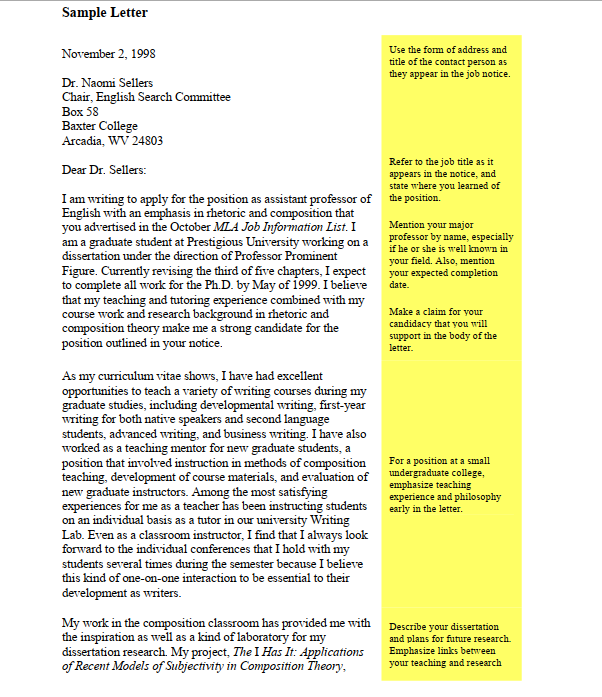
When you're applying for a faculty position with a college or university, the cover letter is your first chance to make a strong impression as a promising researcher and teacher.
When you're applying for a faculty position with a college or university, the cover letter is your first chance to make a strong impression as a promising researcher and teacher. Below you'll find some strategies for presenting your qualifications effectively in an academic context.
A cover letter for an academic job has a function similar to one for a business job, but the content differs significantly in quantity and kind. While the general advice for business cover letters—such as tailoring your letter for the specific job and selling your strengths—still applies, a cover letter for an academic position should be long enough to highlight in some detail your accomplishments during your graduate education in research, teaching, departmental service, and so on. The typical letter is thus usually one and a half to two pages long, but not more than two—roughly five to eight paragraphs.
In the opening of your letter, you need to convey some basic information, such as what specific position you are applying for (using the title given in the job notice) and where you learned of the opening. Since a cover letter is a kind of persuasive writing (persuading a hiring committee to include you on a list of candidates for further review), the first paragraph of your letter should also make the initial claim as to why you are a strong candidate for the position.
In an academic context, knowing your audience means reading the job notice carefully and knowing the type of institution to which you are applying. Most graduate students have studied a broad range of material within their discipline before specializing in a narrow field for the dissertation project. Since it is rare to find a job notice specifying your exact qualifications, you need to emphasize those aspects of your graduate training that seem particularly relevant to the position advertised.
If you're still working on your dissertation, you should mention somewhere in the letter when you expect to be awarded the Ph.D., even being as specific as to mention how many chapters have been completed and accepted, how many are in draft version, and what your schedule for completion is. Last-paragraph tips include the following:
If you have any questions about how to write an academic letter, feel free to leave a comment below. If you’d like 1-on-1 help with your academic letter, be sure to book an initial consultation with one of our friendly, Expert Letter Writers.